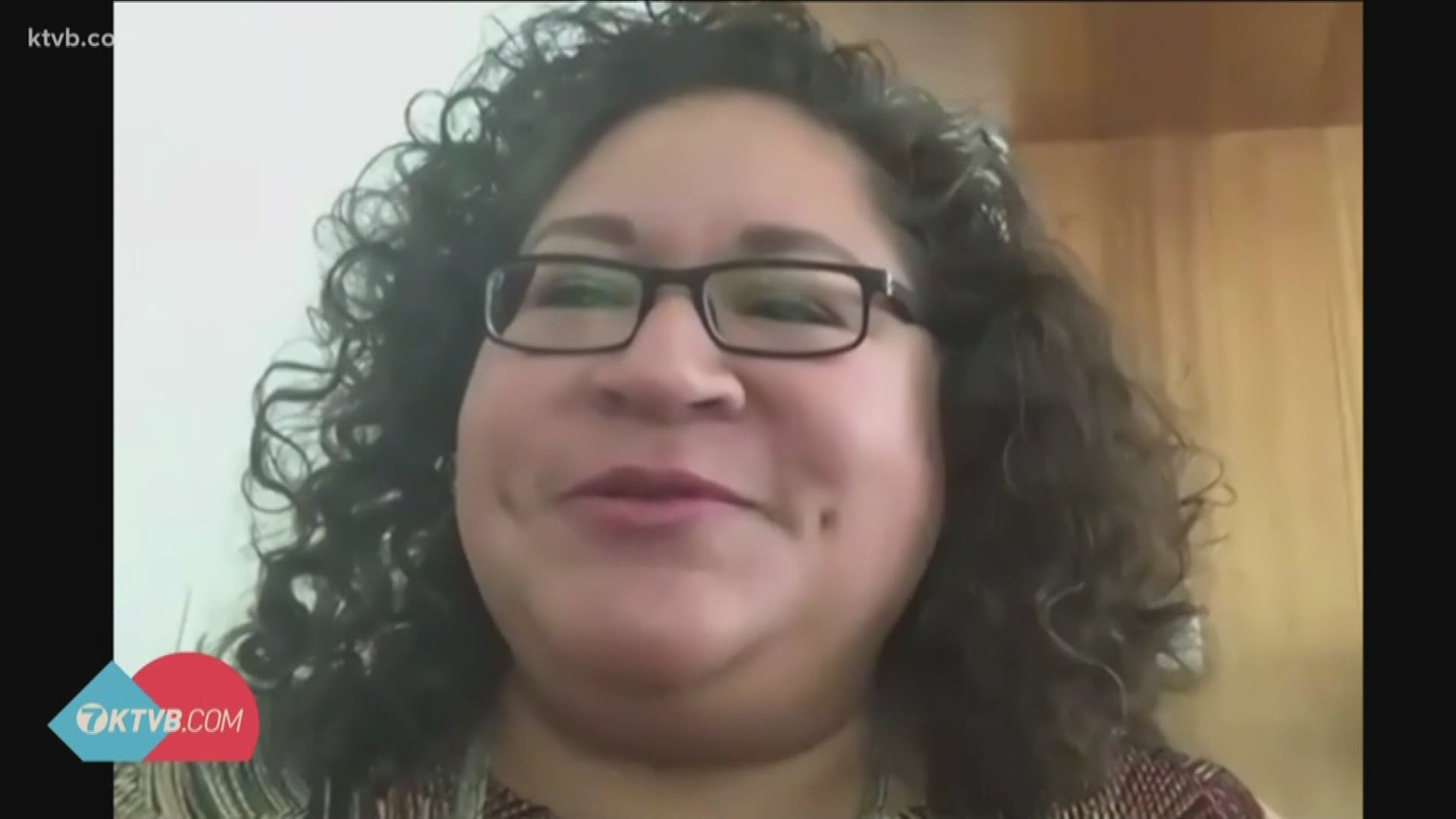BOISE, Idaho — Hundreds of people showed up at the Idaho Statehouse Sunday morning, hoping to effect change, hoping to make a difference. But what happens after those protests are over?
Do protesters go home and carry on with your lives as if nothing has changed?
Boise City Councilwoman Lisa Sanchez is asking that question to every Boisean.
"I'm rather harsh when it comes to issues of social justice," she said. "Remember when everyone was wearing the pink (expletive) hats and safety pins? Where are those hats, where are those pins? They go by the wayside, correct? They're like trends, and we don't need social justice work to be a trend. We really want it to be a commitment from the heart."
Sanchez asks: are you willing to be strong enough to stand up for change, even when there's no national attention calling for it?
"People shouldn't have to die for people to care about social justice and about human rights. But the reality is, the most important and significant contribution that people can make, is to educate themselves. It's very unsexy work, it's boring, it requires you to use your library card. it requires you to sit and listen. It's not flashy, there's no selfies you can take. It's hard work."
"That's what we need folks to do every single day. Going to an event or a gathering is nice, but that's not where the real work happens."
So how do those who want to continue the conversation of change actually do that?
Sanchez says recognizing the amount of work ahead is crucial.
"It does require people to do their own work and to do a self-assessment to figure out 'what am I willing to commit to?' Because when we have these moments where social justice is brought to the forefront, where racial issues are brought to the forefront, it draws our attention, but what we need for it to be is a lifelong commitment to learning."
"We need folks to realize their own privilege. We don't need white people to feel guilty about their privilege. We need people to acknowledge that they have it and to dispel some of it to make sure that everyone in our community feels safe, first and foremost, and has the opportunities to not just survive, but thrive. That's why it's important that we don't just do social justice work during these moments of drama."
"I've been doing social justice work all my life and people get very upset when you call out their acts of white privilege, white supremacy. What people are starting to learn is that it's not these dramatic moments where you see the Proud Boys marching in Charlotte. It's not the KKK, it's your friends, it's your colleagues, it's your neighbors, it's your boss, it's your mom, it's your dad. It's people you know, love and like. Those are the type of people that are engaging in this type of behavior. Are you willing to be strong enough to do the right thing when there's not a parade, not a keynote speaker and there's not a hat and there's not a poster and there's not a selfie? But what there is going to be is a very difficult conversation."
Join 'The 208' conversation:
- Text us at (208) 321-5614
- E-mail us at the208@ktvb.com
- Join our The 208 Facebook group: https://www.facebook.com/groups/the208KTVB/
- Follow us on Twitter: @the208KTVB or tweet #the208 and #SoIdaho
- Follow us on Instagram: @the208KTVB
- Bookmark our landing page: /the-208
- And we also turn each episode into a podcast on Spotify or Podbeam
- Still reading this list? We're on YouTube, too:

